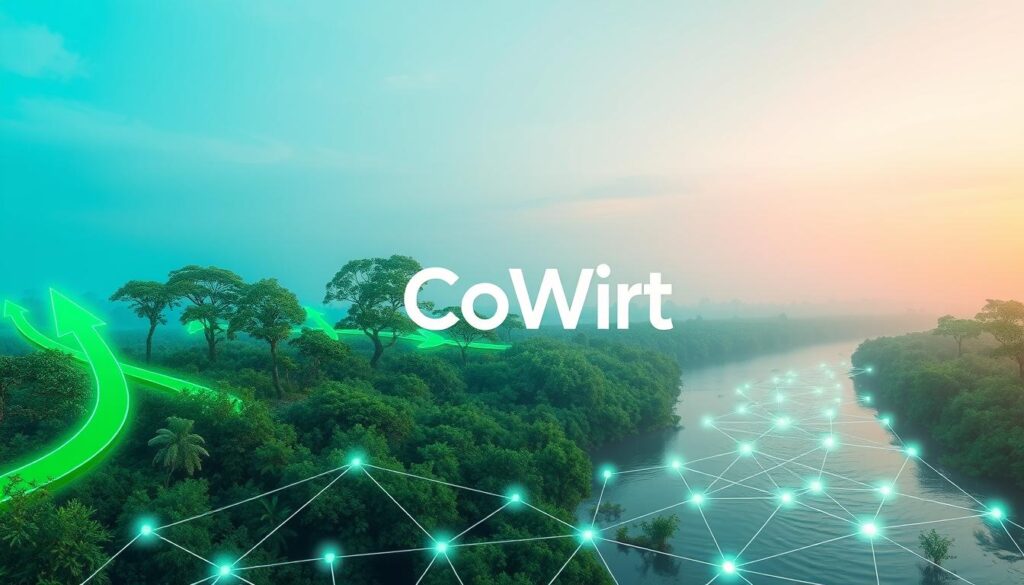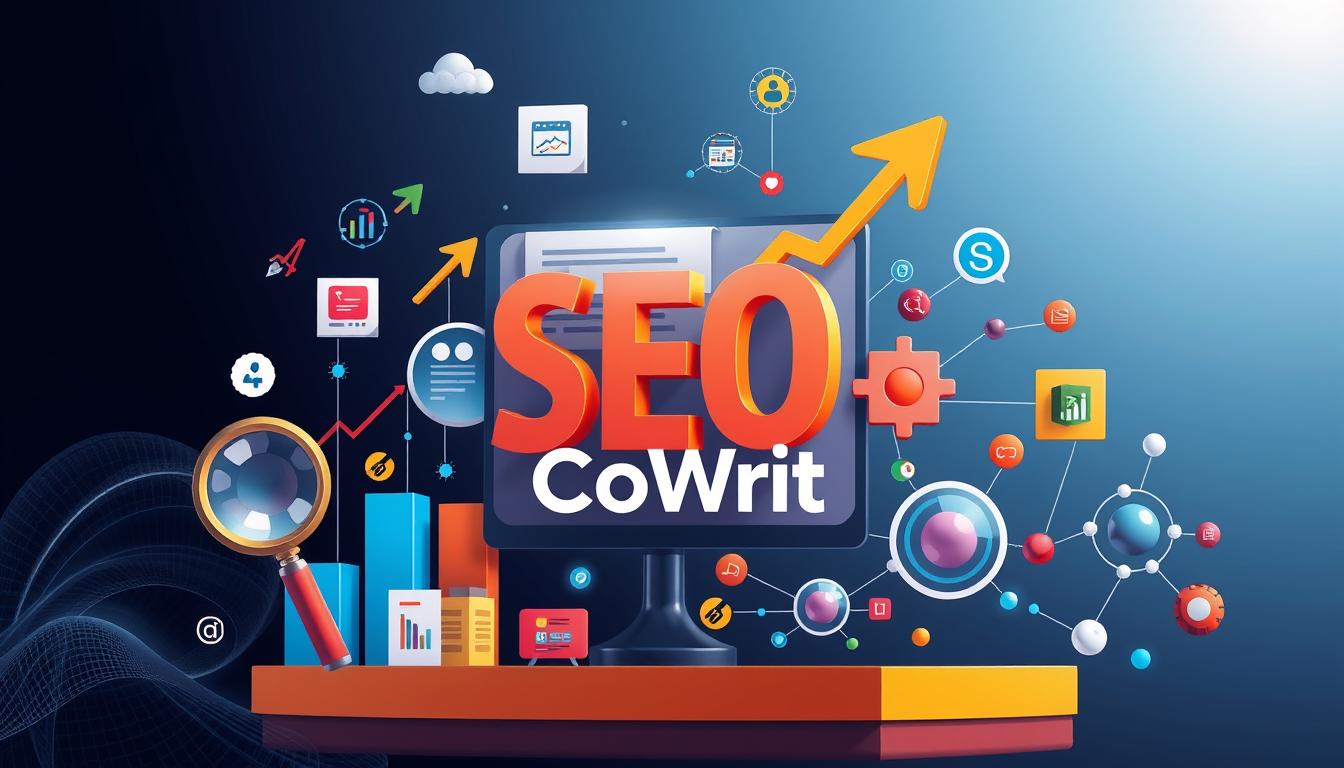In today’s world, your online presence is key to your business’s success. Digital marketing has changed how companies reach their audience, leading to real results and growth. Working with a top digital marketing agency like Power Digital can turn your online efforts into clear wins.
Power Digital combines data, tech, and human smarts to create strategies that work. They use a full approach that includes strategy, data, channel expertise, and special tech. This helps them give you clear insights and start digital marketing campaigns that perform well.
Key Takeaways
- Unlock the power of data-driven digital marketing solutions to boost your online presence
- Leverage the expertise of a leading agency like Power Digital to drive measurable results
- Integrate strategic consulting, data intelligence, and cutting-edge technology for unparalleled success
- Discover how to make your profit predictable through comprehensive digital marketing strategies
- Embrace the transformative potential of digital marketing to fuel sustainable business growth
Understanding Digital Marketing Solutions
Digital marketing solutions are a set of services that help boost your online presence and grow your business. They include strategic consulting, creative development, and digital channels like search engine optimization (SEO), paid advertising, and social media marketing. These solutions are key because they help reach your target audience, increase your brand’s visibility, and provide measurable results.
What Are Digital Marketing Solutions?
Digital marketing solutions use the internet and digital technologies to promote your products or services. They aim to improve your online presence, connect with your audience, and achieve measurable business goals.
Importance of Digital Marketing
In today’s digital world, having a strong online presence is vital for businesses. Digital marketing solutions offer many benefits, including:
- Enhanced online visibility through SEO and pay-per-click (PPC) advertising
- Targeted audience engagement via social media marketing
- Strengthened brand awareness with content marketing and online reputation management
- Cost-effective promotional strategies
- Measurable results driven by data analytics
Key Components of Digital Marketing
The main parts of digital marketing solutions are:
- Search Engine Optimization (SEO): Making your website and content better for search engines to rank higher and attract more visitors.
- Pay-Per-Click (PPC) Advertising: Using paid ads online to reach and engage with your target audience.
- Social Media Marketing: Using social media platforms to build brand awareness, interact with customers, and increase conversions.
- Content Marketing: Creating and sharing valuable content to attract and keep a specific audience.
- Email Marketing: Using email campaigns to nurture leads, build customer relationships, and boost sales.
By combining these elements, digital marketing solutions help businesses meet their marketing goals and maintain a strong online presence.
Benefits of Digital Marketing for Businesses
Digital marketing helps businesses a lot. It boosts brand awareness and increases conversion rates. Companies using digital marketing grow faster than others in their field. This approach helps businesses reach their audience better, leading to more profit and growth.
Increased Brand Awareness
Digital marketing is great for making your brand known. SEO, PPC ads, and social media help businesses get seen online. 89% of marketers say SEO works well, and PPC ads can boost brand awareness by up to 80%.
Higher Conversion Rates
Digital marketing also helps businesses get more customers. Targeted ads, personalized content, and data help attract and keep customers. eMarketer says online shopping will be 20.1% of all sales by 2024, showing digital marketing’s role in sales.
Digital marketing is also cheaper than old-school methods. It lets small businesses compete with big ones. Clutch found 45% of people visit a store after searching online, and 76% look up a website before going to a store. A good digital marketing plan can grow your customer base and profits.

“The Good Impressions program provided a digital advertising budget for Madhu Chocolate to run Facebook and Instagram ads from September to December, resulting in a huge boost in holiday sales.”
Core Strategies in Digital Marketing
In today’s fast-paced digital world, businesses need a variety of strategies to succeed. Three main areas are Search Engine Optimization (SEO), Pay-Per-Click (PPC) advertising, and social media marketing. These strategies help create a strong online presence, attract the right audience, and increase engagement and sales.
Search Engine Optimization (SEO)
SEO makes your website more visible in search engine results. It involves keyword research, optimizing your site, and creating valuable content. With SEO, you can boost your website’s visibility and attract more organic traffic. Since Google drives 94% of total organic traffic, SEO is vital for any digital marketing plan.
Pay-Per-Click (PPC) Advertising
PPC lets you show ads on search engines and other websites. You only pay when someone clicks on your ad. This makes PPC a cost-effective way to get more traffic and leads. PPC is effective because you only pay for actual clicks, allowing for targeted and measurable ads.
Social Media Marketing
Social media is key for building brand awareness and engaging with customers. You can use platforms like Facebook, Instagram, and LinkedIn to share content and grow your community. Setting SMART goals, like increasing Instagram followers by 20% in three months, helps measure your social media success.
By combining SEO, PPC, and social media, businesses can build a strong online presence. This helps them reach their target audience, drive traffic, and achieve their goals.
| Strategy | Key Benefits | Metrics to Track |
|---|---|---|
| SEO |
|
|
| PPC |
|
|
| Social Media Marketing |
|
|
“Integrating SEO, PPC, and social media marketing is the key to a well-rounded digital marketing strategy that drives measurable results.”
Crafting a Successful Digital Marketing Plan
Creating a solid digital marketing plan is key for businesses wanting to boost their online presence. It’s all about knowing your target audience, setting clear goals, and tracking your success metrics.
Defining Your Target Audience
Knowing your audience is the first step to a winning digital marketing strategy. Use data and strategy to find the best ways to reach your customers. Create detailed profiles of your ideal customers, covering their demographics, behaviors, and preferences.
Setting Clear Goals
It’s vital to set SMART (Specific, Measurable, Achievable, Relevant, and Time-bound) goals for your digital marketing. These goals should match your business aims, making sure your marketing efforts lead to real results.
Measuring Success Metrics
It’s important to track how well your digital marketing is doing. Use key performance indicators (KPIs) and data analytics tools to see what’s working. This helps you make smart choices and keep improving your plan.

“A well-crafted digital marketing plan is the roadmap to success in today’s competitive online landscape.”
Focus on defining your target audience, setting clear goals, and tracking your success metrics. This way, you’ll have a digital marketing plan that brings real results and helps your business grow.
The Role of Content Marketing
Content marketing is key in digital marketing. It helps attract, keep, and convert your audience. The goal is to make content that speaks to your audience and fits your marketing goals.
Creating Engaging Content
Making engaging content is vital for success. This can be blog posts, videos, infographics, or social media posts. It should be informative, relevant, and look good to grab and keep your audience’s attention.
Types of Content to Consider
- Blog Posts: Detailed articles that offer insights and solve problems for your audience.
- Videos: Content that educates, entertains, or shows off your products or services.
- Infographics: Visuals that make data or information easy to understand.
- Social Media Updates: Short content that keeps your audience informed and active on social media.
- Whitepapers: Detailed reports that show your brand’s expertise in the industry.
- E-books: Digital books that provide in-depth information on a topic.
Using different types of content meets your audience’s varied needs. This makes your content marketing more impactful and engaging.
“Consistent, high-quality content is the foundation of a successful content marketing strategy. It helps build trust, authority, and lasting relationships with your audience.”
| Content Type | Key Benefits | Best Practices |
|---|---|---|
| Blog Posts | More website traffic, better search rankings, thought leadership | Use keywords, be informative, and visually appealing |
| Videos | Boost engagement, increase brand awareness, more shares | Be entertaining, educational, and mobile-friendly |
| Infographics | More shares, better content retention, looks good | Use data, be visually appealing, easy to understand |
| Social Media Updates | More audience interaction, better brand visibility, build relationships | Be timely, interactive, and post regularly |
By using a variety of content types, businesses can better reach and engage their audience. This leads to content marketing success and engaging content experiences.
Leveraging Social Media Platforms
In today’s world, social media is key for brands to tell their stories and connect with customers. By using these platforms wisely, companies can grow their online presence. They can also build a strong community and increase online engagement.
Choosing the Right Platforms
First, find the social media platforms that match your audience. Each platform has its own audience and features. For example, Instagram is great for showing off products, while LinkedIn is best for professional networking.
Research your audience’s social media habits to pick the best platforms. This way, you can get the most out of your marketing efforts.
Building a Community Around Your Brand
Creating a strong brand community is crucial for loyalty and advocacy. Social media is perfect for this, allowing for real conversations with your audience.
- Share content that your followers will find valuable and interesting.
- Encourage your followers to share their experiences with your brand.
- Always respond quickly to comments and messages to show you care.
- Work with influencers to reach new people and build trust in your brand.
By building a strong brand community, you can turn your customers into loyal supporters. This will help you grow your reach and increase online engagement.
| Social Media Platform | Key Statistics | Ideal for |
|---|---|---|
| 302.28 million users in the U.S. (2021) | Building community, sharing content, advertising | |
| 130 million users in the U.S. (expected to reach 136 million by 2025) | Visual storytelling, influencer marketing, e-commerce | |
| Facilitating conversations, advertising | Thought leadership, customer service, real-time updates | |
| TikTok | Over 1 billion active users globally | Viral content, influencer marketing, user-generated content |
By using the unique features of different social media platforms, businesses can build a strong brand community. This leads to more online engagement with their audience.
Email Marketing: A Powerful Tool
Email marketing is key to any digital marketing plan. With over 4.7 billion email users, it’s a direct way to reach people. It lets businesses send personalized messages to their audience.
Crafting Effective Campaigns
Creating great email campaigns is crucial. You need catchy subject lines, valuable content, and clear calls-to-action. Salesforce says 47% of marketing leaders find email marketing very effective for sales.
Personalization in Email Marketing
Personalization makes email marketing even better. Using customer data to customize messages can boost open rates and sales. First Pier found that email marketing helps build strong customer relationships.
Email marketing is very profitable, with an average return of $36 for every $1 spent. As we move more online, email marketing is vital for connecting with people. It’s a big part of Marketing Campaigns and Personalization.
“Email is used by over 4.7 billion users, estimated to rise to 4.48 billion by 2026.”
| Metric | Value |
|---|---|
| Emails Sent and Received Daily (2020) | 306.4 billion |
| Projected Emails Sent and Received Daily (2025) | 376.4 billion |
| Average Email Marketing ROI | $36 for every $1 spent |
| Percentage of Marketing Leaders Considering Email Most Effective for Sales Conversion | 47% |
SEO: Driving Organic Traffic
Search engine optimization (SEO) is key in digital marketing. It helps bring organic traffic to your site. By improving your online presence, you become more visible on search engine results pages (SERPs). This makes it easier for potential customers to find you.
On-Page SEO Techniques
On-page SEO makes your website better for search engines. It involves keyword research, creating quality content, and optimizing page titles and meta descriptions. It also includes using header tags (H1, H2, H3, etc.) correctly.
Off-Page SEO Strategies
Off-page SEO builds your website’s authority. It involves getting backlinks from trusted sites. This includes guest blogging, directory submissions, and social media engagement. These actions boost your domain authority and search engine rankings.
Technical SEO Considerations
Technical SEO focuses on your website’s technical aspects. It ensures search engines can crawl, index, and rank your pages well. This includes improving site speed, making your site mobile-friendly, and using structured data.
With a well-rounded SEO strategy, you can increase organic traffic. This boosts your online visibility and helps generate more leads and sales. On-page, off-page, and technical optimization are all important.

“SEO is not just about getting traffic – it’s about getting the right kind of traffic.”
Good SEO helps you reach your target audience and build brand awareness. It sets you apart from competitors. By keeping up with SEO trends, you can grow your online presence sustainably.
Analytics and Measuring Success
In digital marketing, data is key to success. Marketing Analytics offer insights into your campaigns’ performance. This helps you make better decisions and improve your strategies.
Importance of Data in Digital Marketing
Data-driven marketing is essential for business growth. By tracking key metrics, you understand your audience better. You can spot areas to improve and see the value of your marketing.
Tools for Tracking Performance
Choosing the right tools for Marketing Analytics is vital. Google Analytics, social media insights, and custom dashboards offer valuable data. They help you track website traffic, user behavior, and conversion rates. This data lets you find opportunities, refine your strategies, and measure your marketing success.
| Metric | Description | Relevance |
|---|---|---|
| Website Traffic | The number of visitors to your website, including new and returning visitors. | Indicates the overall reach and engagement of your digital marketing efforts. |
| Conversion Rate | The percentage of website visitors who complete a desired action, such as making a purchase or filling out a form. | Helps measure the effectiveness of your marketing campaigns and website optimization. |
| Bounce Rate | The percentage of visitors who leave your website after viewing only one page. | Provides insights into the user experience and the relevance of your content. |
| Social Media Engagement | Metrics such as likes, shares, comments, and click-through rates on social media platforms. | Indicates the level of audience interaction and the effectiveness of your social media strategy. |
By regularly checking these key indicators, you can make informed decisions. This helps you improve your Marketing Analytics and grow your business sustainably.
“In the digital age, data is the foundation for making informed decisions and driving business growth. Leveraging Marketing Analytics is crucial for any successful digital marketing strategy.”
How to Choose the Right Digital Marketing Agency
Finding the right digital marketing agency is key for your business’s online success. The digital marketing world changes fast. You need an agency with the right expertise and marketing services to help your business grow. Here are important things to think about when picking the best digital marketing partner:
Evaluating Experience and Expertise
Choose a digital marketing agency with a strong track record in your field. Check their portfolio, client feedback, and case studies. Make sure they know a lot about different digital marketing areas like SEO, PPC, and social media.
Understanding Service Offerings
A good digital marketing agency should offer many marketing services. Look at what they can do, like creating content, designing websites, sending emails, and analyzing data. Pick an agency that can give you a custom solution that fits your goals.
| Key Considerations | Importance |
|---|---|
| Industry Experience | Ensures the agency understands your market and can develop effective strategies |
| Diverse Service Offerings | Enables a holistic approach to digital marketing, covering various aspects of your business |
| Cutting-edge Tools and Technologies | Allows the agency to leverage the latest advancements in the industry |
| Proven Track Record and Testimonials | Demonstrates the agency’s ability to deliver successful campaigns and satisfied clients |
By looking closely at the agency’s expertise and service offerings, you can make sure your partnership will bring real results. This will help your business grow online.

Staying Ahead in the Digital Landscape
To stay ahead in digital marketing, it’s key to know the latest trends and adapt quickly. The rise of AI and voice search, along with privacy rules, are big changes. Marketers must use new tech and strategies to connect with their audience.
Trends to Watch in Digital Marketing
The digital world is changing fast. Keeping up with trends like AI, voice search, and data-driven decisions is crucial. These innovations will shape the future of digital marketing.
Adapting to Changes and Challenges
Being adaptable is vital in digital marketing. Knowing about changes like privacy rules and mobile-first content helps. By learning and trying new things, you can overcome challenges and seize opportunities.



